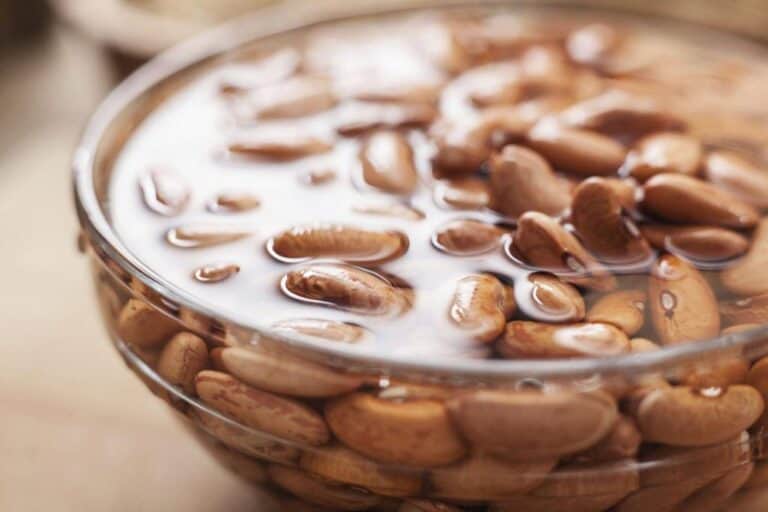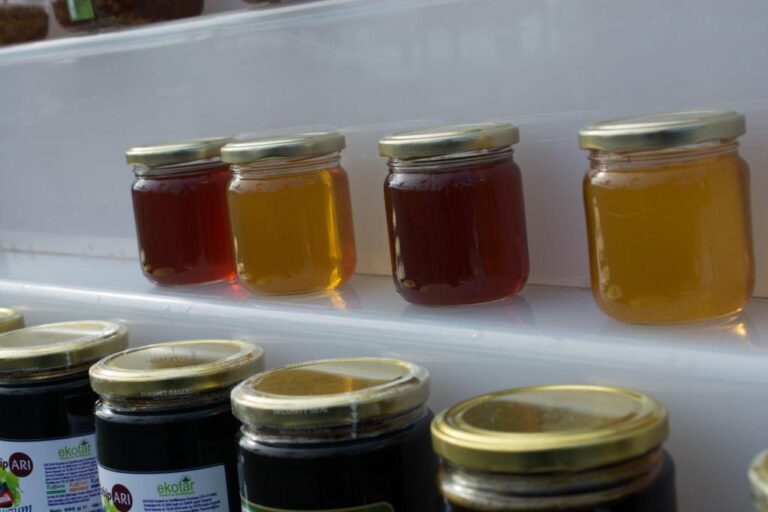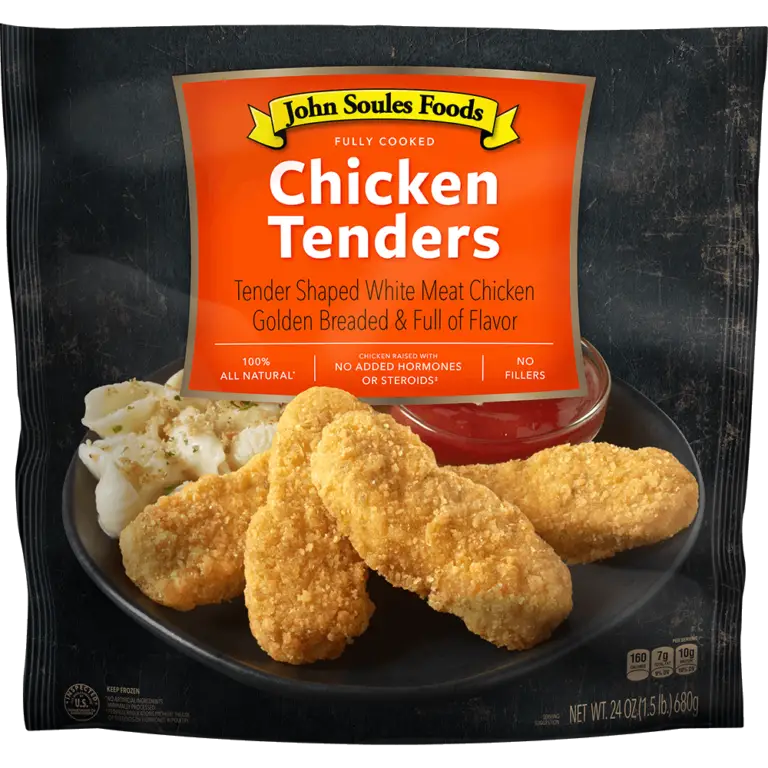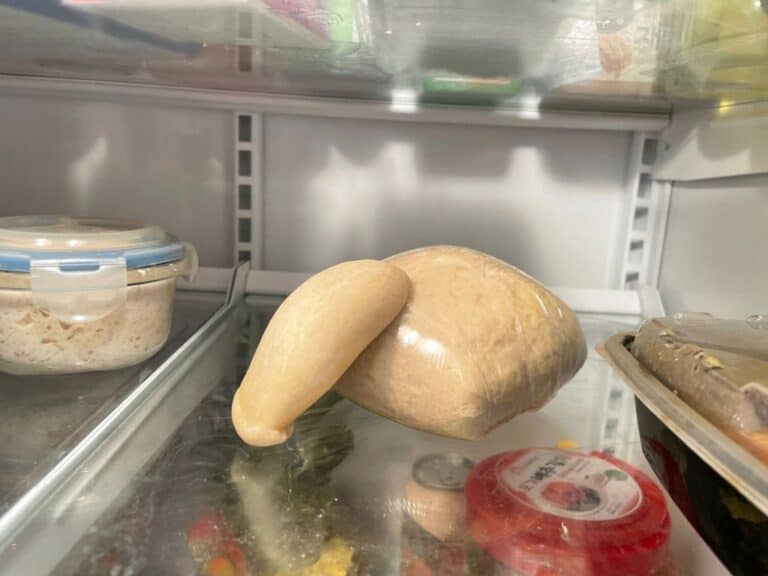Does Eating Cold Food Burn More Calories? Is It Good for Weight Loss?

Hey there! Are you curious about whether eating cold food can help you burn more calories and lose weight? You’re not alone—there’s been a lot of talk lately about the potential benefits of consuming cold food for weight loss.
There has been a lot of talk lately about how eating cold food may increase the thermic effect of food (TEF) and help speed up the metabolism.
But is there any truth to this claim? In this blog post, we’ll dig into the research on cold food and calorie burn to help you determine whether it’s a strategy worth trying.
So let’s get started!
Does Eating Cold Food Burn More Calories?
You might have heard the theory that eating cold food can help you burn more calories. The idea is that the body has to work harder to warm the cold food to body temperature, which could potentially increase the thermic effect of food (TEF). TEF is the amount of energy used by the body to digest, absorb, and process food.
If the body must expend more energy to bring cold food to body temperature, the TEF and number of calories burned may increase.
But research on this subject isn’t clear-cut, and the evidence isn’t all one way or the other. Some studies have found that eating cold food causes the body to burn more calories, whereas others have found no significant difference in calorie burn between cold and room-temperature food.
Whether or not eating cold foods will help you lose weight depends on a lot of things, like your metabolism and how many calories are in the meal you are eating. Other factors, such as physical activity and basal metabolic rate (BMR), also play a role.
Why You Shouldn’t Eat Cold Food Every Day?
Eating cold food every day may not be the best choice for your health because it can harm your gut and overall well-being. Cold food may shock the gut, which can cause bad digestion issues, fatigue, and sinus infections.
One of the main concerns with eating cold food every day is that it may disrupt the balance of good and bad bacteria in the gut. The gut microbiome is a complex community of bacteria that is important for digestion and overall health.
If you regularly eat cold food, it could change the balance of bacteria in your gut, which could lead to digestive problems like bloating, constipation, or diarrhea.
Some people believe that cold food can weaken the immune system, making you more susceptible to infections such as sinus infections. Cold food may also cause fatigue, as the body has to work harder to warm it to body temperature before it can be properly digested.
While it’s generally safe to eat cold food occasionally, listen to your body and pay attention to any potential negative effects. If you feel bad after eating cold food, it might be best to stay away from it or eat it in small amounts.
What Is Fat-Burning Food?
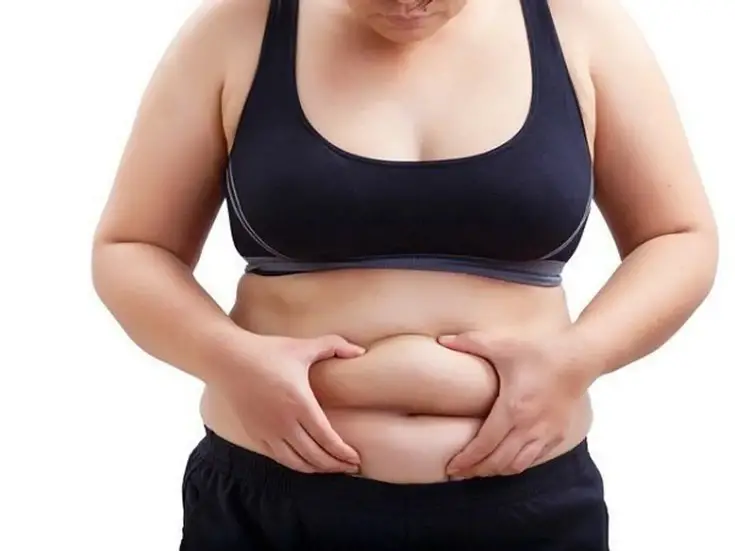
A fat-burning food is a type of food that may help stimulate metabolism, reduce appetite, or reduce overall food intake, leading to fat loss.
There are many different types of foods that are thought to have fat-burning properties, and some examples include:
- Protein-rich foods. Protein has a high thermic effect of food (TEF), meaning that the body burns more calories digesting protein than it does digesting other macronutrients such as carbohydrates or fat. High-protein foods, such as eggs, chicken, and tofu, may help increase metabolism and reduce appetite, making them potentially effective for weight loss.
- Fiber-rich foods. Foods that are high in fiber, such as fruits, vegetables, and whole grains, may help keep you feeling full and satisfied, reducing the temptation to snack on unhealthy foods. In addition, some types of fiber, such as soluble fiber, can help slow down digestion and the absorption of nutrients, which may help regulate blood sugar levels and reduce the risk of developing type 2 diabetes.
- Healthy fats. Some types of fats, such as monounsaturated and polyunsaturated fats, can be beneficial for weight loss. Oily fish, nuts, and avocados are good sources of these types of fats and may help reduce inflammation, which can play a role in weight gain.
Some examples of fat-burning foods include eggs, nuts, and oily fish.
Eggs are a good source of protein, which has a high thermic effect of food (TEF), meaning that the body burns more calories digesting protein than it does digesting other macronutrients such as carbohydrates or fat. Also, boiled eggs are filling and may help you feel less hungry after eating, which makes it easier to stick to a low-calorie diet.
Nuts, particularly almonds and walnuts, are also high in protein and fiber, which can help keep you feeling full and satisfied.
Oily fish, such as salmon and sardines, are high in omega-3 fatty acids and protein, and may help reduce inflammation, which can play a role in weight gain.
Does Being Cold Boost Metabolism?
There is some scientific evidence to suggest that being cold can boost metabolism. Metabolism is the name for the chemical processes that happen in the body to keep it alive. These processes include breaking down nutrients to make energy.
There are two primary ways that cold exposure increases metabolism: shivering thermogenesis and non-shivering thermogenesis.
Shivering thermogenesis occurs when the body shivers in response to cold temperatures to generate heat. In order to make heat, the body burns more calories, which can speed up the metabolism.
On the other hand, a special type of fat called brown fat mediates nonshivering thermogenesis. Brown fat is a type of fat that is rich in mitochondria, the powerhouses of the cell. It is called “brown” because of its reddish-brown color, which is due to the high density of mitochondria.
Brown fat is able to convert food into heat, which helps keep the body warm without the need for shivering. When the body is exposed to cold, brown fat is turned on and starts burning calories to make heat, which speeds up the metabolism. |
How to Increase Your Body’s Metabolism to Burn More Calories
If you want to achieve optimal weight loss, increasing your body’s metabolism is a great way to burn more calories. A high metabolism means that the body uses its energy efficiently, so it burns through calories quickly. If you’re looking for ways to boost your metabolism naturally, here are some simple tips that can help get your engine running!
- Eat more protein. Protein is a macronutrient that helps build and repair tissues and produces hormones and enzymes. It has a high thermic effect, which means that your body burns more calories digesting protein than it does digesting fats or carbohydrates. Increasing your protein intake can help boost your metabolism and burn more calories.
- Exercise regularly. Regular physical activity is essential for maintaining a healthy metabolism. Cardio exercise, in particular, has been shown to boost metabolism and burn more calories. In addition to cardio, strength training can also help to increase metabolism by building muscle mass, which requires more energy to maintain than fat tissue.
- Stay hydrated. Drinking enough water is important for maintaining a healthy metabolism. Dehydration can slow down metabolism, so it is important to stay hydrated by drinking plenty of water throughout the day.
- Get enough sleep. A sufficient amount of sleep is necessary for maintaining a healthy metabolism. Lack of sleep can disrupt the balance of hormones that regulate metabolism, leading to weight gain. Aim for at least 7-9 hours of sleep per night to help boost metabolism.
- Eat smaller, more frequent meals. Eating smaller, more frequent meals throughout the day can help boost metabolism by keeping the body’s metabolism constantly active. Instead of eating three large meals, try eating five to six smaller meals throughout the day.
- Eat metabolism-boosting foods. Certain foods, such as green tea, chili peppers, and nuts, are thought to have metabolism-boosting properties. Incorporating these foods into your diet may help increase your metabolism and burn more calories.
- Take metabolism-boosting supplements. There are several supplements that are claimed to boost metabolism and help you burn more calories. These include caffeine, green tea extract, and conjugated linoleic acid (CLA). It’s important to remember that the effectiveness of these supplements can vary, so talk to a doctor before taking any new ones.
- Stay active throughout the day. Instead of sitting for long periods of time, try to stay active by taking regular breaks to stretch or walk around. This can help to boost metabolism and burn more calories.
- Use cold thermogenesis. As mentioned earlier, being cold can boost metabolism through shivering thermogenesis and nonshivering thermogenesis. Exposing yourself to cold temperatures, either through cold showers or ice baths, may help boost your metabolism and burn more calories. Extreme colds can be dangerous and cause serious health issues, so be careful when exposed to it.
- Use interval training. Interval training is a type of exercise in which you switch between short periods of high-intensity and short periods of low-intensity activity. This type of training has been shown to be more effective at boosting metabolism and burning more calories than steady-state cardio.
By implementing these tips, you can help increase your metabolism and burn more calories. Always pay attention to what your body is telling you and talk to a doctor or nurse before making big changes to how you exercise or eat.
Conclusion
While eating cold food may be a small factor to consider when it comes to calorie burn, it’s more important to focus on an overall diet and exercise habits for weight loss and overall health.
So, while it’s interesting to consider the potential benefits of cold food, don’t rely on it as a weight-loss strategy. Instead, focus on making healthy, balanced choices and being physically active.
It’s important to note that all foods stimulate metabolism to some degree, as the body must use energy to digest and process the food we eat. But the term “fat-burning food” is often used to describe foods that may have a strong effect on your metabolism, appetite, or the amount of food you eat.
While these types of foods can be helpful in a weight-loss diet, it’s important to remember that they should be incorporated as part of a balanced, calorie-controlled diet in order to be effective.
Overall, it’s important to have a varied and balanced diet that includes a variety of different types of foods.


